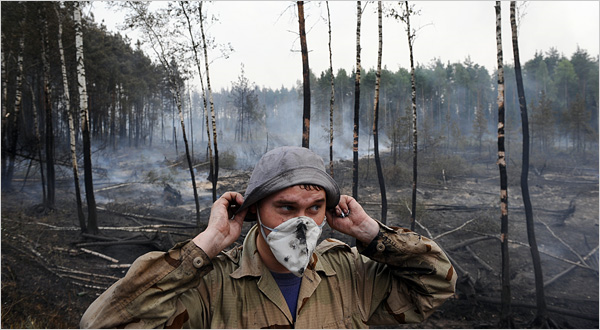Russia bans grain exports amid crippling drought
By ANDREW E. KRAMER
Published: August 5, 2010 MOSCOW — Prime Minister Vladimir V. Putin banned all exports of grain on Thursday after millions of acres of Russian wheat withered in a severe drought, driving up prices around the world and pushing them to their highest level in two years in the United States. The move was the latest of several abrupt interventions in the Russian economy by Mr. Putin, who called the ban necessary to curb rising food prices in the country, which is suffering from the worst heat wave since record-keeping began here more than 130 years ago.“We need to prevent a rise in domestic food prices, we need to preserve the number of cattle and build up reserves for next year,” Mr. Putin said in a meeting broadcast on television. “As the saying goes: reserves don’t make your pocket heavy.” During his years as president and prime minister, Mr. Putin has never hesitated to marshal the power of the state to protect Russian economic interests, and this decision showed that this has remained his prerogative even after he stepped down as president. Mr. Putin has also proven adept at deflecting criticism of the government with grand gestures, and the export ban was widely seen as one of a series of populist moves by Mr. Putin to address rising resentments over the calamitous heat wave and the fires it has spawned. Pressure was also brought to bear by multinational grain trading companies, which have been lobbying for the ban as a way to escape futures contracts drawn up before the drought, when prices were far lower. A Russian subsidiary of Glencore, the Swiss-based commodities trading company that has close ties to the Russian government, pressed hard as the scope of the drought’s devastation became clear. Wheat prices have soared by about 90 percent since June because of the drought in Russia and parts of the European Union, and floods in Canada, and the ban pushed prices even higher. …
Russia Bans Grain Exports Amid Crippling Drought
